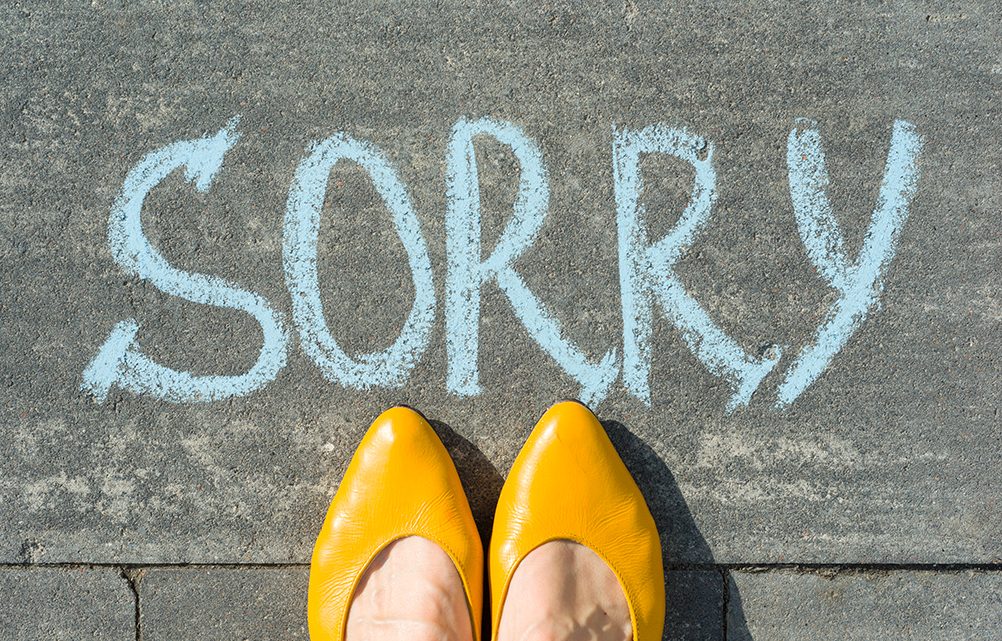I held the phone away from my ear, waiting for the banshee on the other end to wear herself out. Sensing the end of the tirade, I took the stand and let Jane have it!
Jane was like a placebo mom. Since I was a kid she had been a close friend, confidant and mentor. But recently conflict had arisen between us. In the past couple of weeks, as I was home from college for Christmas break, we walked on eggshells around each other to maintain a tentative peace.
One night the peace came crashing apart. Our relationship felt like a shattered Humpty Dumpty, and all the king’s horses and all the king’s men took off running in the opposite direction. Jane and I loved one another, but we were both suffering due to the various hurts we dealt each other through our words and actions. What both of us desperately wanted, but were unwilling to give, was a sincere, heartfelt apology followed by a change in behavior.
Both of us are Christians and wholeheartedly believe in the importance of forgiveness. But I was at a loss for how to grant her this. I expected an apology from Jane, but realized that I wasn’t sure how to offer one myself. Mark 11:25 tells us to “forgive them, so that your Father in heaven may forgive your sins.” But I have come to see that few people really know how to offer a genuine apology.
Actively listen
Many times, people utter the words “I’m sorry” without really knowing what it is they are apologizing for. Psychologist Harriet Lerner, in her book Why Won’t You Apologize? Healing Big Betrayals and Everyday Hurts, encourages those apologizing to “Ask questions about what you don’t understand. When the criticism is vague… ask for a concrete example.” The best way to understand what you did to hurt them is to simply ask and then actively listen.
Avoid defensiveness
Some people avoid apologizing at all costs. One of the reasons may be because instead of feeling constructive grief—feeling bad for an action—they feel debilitating shame, a black mark on their character.
“When you have fairly solid self-esteem you can admit to being in the wrong, without feeling like you’re weakening the fabric of self, or losing something to the other person,” says Lerner. To really hear a person tell you the ways you have hurt them, and to accept that action and genuinely apologize for it, you have to believe that the action does not define you.
Offer the words and actions
Hearing a person apologize to you can be a start to healing the wounds in a relationship. But an apologizer who continues to repeat the hurtful action negates their words. Matt. 7:12 calls us to “Do to others as you would have them do to you.” If you are going to say you are sorry, be willing to follow it up with a change in behavior that proves your apology is sincere and that you care about the well-being of the other person.
Don’t demand forgiveness
Sometimes you will say you are sorry, and you will do everything you can to keep from repeating the same choices, but the person you hurt won’t be willing or able to let it go. Whether it takes them a few minutes, weeks or years, a person has no obligation to forgive you, and demanding it will only hurt them further. It is important to remember that you can only control your own actions and emotions.
Sometimes all you can do is offer a sincere apology to the hurt party, and then give them space to decide what they will do with it.
Natasha McWilliams-Nasser is a senior communication and marketing major at Union College from Chico, California.










